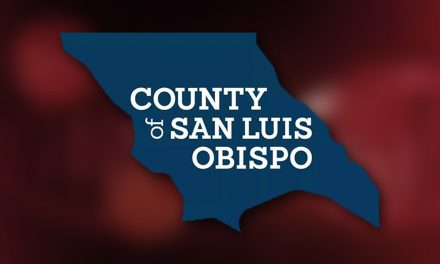PASO ROBLES — After almost two years of planning, public outreach and discussion, the City of Paso Robles approved the Groundwater Sustainability Plan for the Paso Robles Water Basin on Dec. 17. The GSP’s completion and approval is a vital step in keeping the power of water management in local hands and not controlled by the State of California.
The City of Paso Robles Groundwater Sustainability Board, comprised of the City Council, passed the GSP in a majority vote of 3-0 with Mayor Steve Martin and Councilmember Maria Garcia absent. The decision joined in agreement with three other local agencies within the Paso Basin that include the County County of San Luis Obispo, the Shandon-San Juan Water District and the San Miguel Community Services District. Including the City, the four entities comprise the Paso Basin Groundwater Sustainability Agency. The plan still needs to be approved by state lawmakers.
“The State considers us a high priority basin,” Public Works Director Dick McKinley said. “If we were not to do this, then the State would and could intervene and tell people to stop pumping.”
The GSP is a massive document that includes geographical boundaries, terminology definitions, proposed monitoring procedures and identifies the County Public Works Director as the lead contact for State inquiries. Being such a complex undertaking, the Paso Basin GSA has passed the plan in chapters.
During his presentation, McKinley called attention to two men that devoted their time to the completion of the project.
“I want to specifically thank Greg Grewal and Cody Ferguson here in the audience today,” McKinley said. “These two gentlemen on their own time have spent hundreds of hours in working out this plan and making it be just the right plan for the community. It’s something that everyone can live with, not everyone loves it, but everyone can live with it.”
During the Public comment section, Ferguson and Grewal briefly addressed the board. Ferguson said that GSP is the culmination of years of planning and interaction. He proactively refuted any claims that people did not have ample opportunity to be involved or have their voices heard during the planning process.
Grewal made mention of the stormwater capture projects being planned in North County. He stated that of the four major rivers that begin in SLO County, only the Salinas carries water out of the County. The other three waterways end in North County and recharge the Basin.
“Those are all the main recharge rivers on all the history going back to when a lot of this reporting was going on,” Grewal said indicating them on a Public Works map.
With the Paso Basin being a high water priority for the State, Grewal said that the area is in an excellent position to garner funds for these water-capture projects from California Proposition 1, the 2014 Water Quality, Supply, and Infrastructure Improvement Act. The Act authorizes over $7 billion in general obligation bonds to fund ecosystems and watershed protection and restoration, water supply infrastructure projects including surface and groundwater storage.
Greywall said the area missed the opportunity to partake of some of the $48 million the State had leftover in 2019.
“In February they have another $90 million that is available for basins like our basin, so hopefully our cooperative group can work together to try and get that money,” Greywall said. “We can keep getting the money from Prop 1 for the grants we’re working on because they have us staged as a high priority.”














